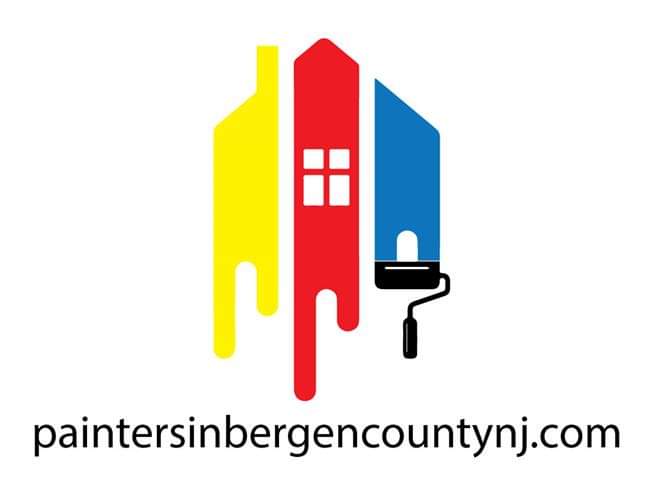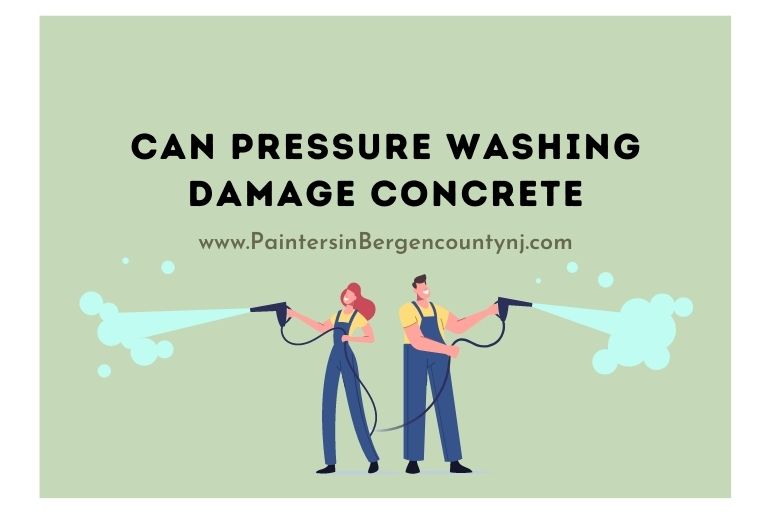If you’re contemplating pressure washing your concrete deck or patio, you may be questioning: Can Pressure Washing harm concrete? The response is contingent on the surface and the amount of pressure utilized. While a pressure washer can potentially damage your concrete surface, there are also preventative measures available. By adhering to these guidelines, you can quickly achieve a sparkling deck or patio. However, it’s crucial to comprehend the risks associated with washing your concrete before you begin using a pressure washer.
Can Pressure Washing Damage Concrete
Pressure washing is a useful cleaning tool. While many people assume that pressure washing is a simple DIY project, improper use of the equipment can result in costly damage. Although concrete is durable, it is prone to scratches and other surface imperfections over time, especially if it’s a heavily trafficked driveway. In addition, pressure washing is a powerful tool that can deliver water at up to 30 times the pressure of a garden hose. In some cases, this can result in damage to concrete.
Many factors can cause damage to concrete, including holding the wand too close to the concrete, using the wrong nozzle, and not keeping the injector over the same area for an extended period. In most cases, the damage is not visible, and a reputable pressure washing company has an impeccable reputation. However, pressure washing may cause damage in some cases, which professional pressure washers can easily repair.
Although pressure washing may not be a serious problem, inexperienced homeowners may choose the wrong nozzle or use too high a water pressure. Because pressure washers use high water pressure, the damage could be visible. Excessive pressure washing can also cause the surface of concrete to crumble or loosen, exposing unsealed concrete or aggregate. In particular, homeowners should be careful when pressure washing slabs that were poured just a year ago.
Pressure Washer
If you are planning on pressure washing your home, you should be aware of possible damages to concrete, pavers, and bricks. While pressure washing does not damage concrete per se, it can weaken pavers and bricks. Inexperienced homeowners may not use the correct nozzle or apply too much pressure. They may also not understand the power of a high-pressure stream of water. While pressure washing concrete does not damage pavers and bricks per se, it can weaken these materials and cause visible damage.
There are many ways to avoid damaging concrete surfaces with a pressure washer. Use the proper nozzle, adjust the pressure appropriately, and follow the manufacturer’s instructions. Never use a higher pressure than you actually need for your concrete surfaces. Using a garden hose to clean wooden decks and other concrete surfaces may also be possible. When pressure washing concrete, you should be extra careful when spraying. Then, use a low-pressure setting on your nozzle to avoid damaging your concrete surfaces.
In addition to following the manufacturer’s instructions, you should always observe the results of the pressure washing process. A discolored area or uneven surface can be damaged, and it is best to avoid pressure washing on freshly-laid concrete. It is important to be patient as concrete needs about a year to adjust to high-pressure washing. Moreover, pressure washing a newly-laid concrete is not recommended. This type of concrete needs a year to adapt to high pressure before it can withstand it.
Concrete Surface
Using a pressure washer to clean your concrete surface can lead to visible damage. A common cause of concrete damage is using the wrong nozzle. While the smallest nozzle might seem the most tempting choice, it is not a good idea. A broader tip will create less pressure and encourage water to flow more evenly across the surface. In addition, a direct tip can damage the concrete’s surface by creating pitting cracks and degradation. These cracks will spread over time, reducing the lifespan of the concrete surface.
In addition to damaging the surface, pressure washing can also damage sealers and coatings. In addition, it can rip off the top layer of concrete, causing etch marks. Remember, the top layer of concrete is what gives the surface its strength. If you don’t want to leave this top layer untreated, wait a year before pressure washing it. The longer you wait, the better the quality of the concrete will be. A few simple tips can save you a lot of trouble.
The first step to avoiding damage to concrete surfaces is to learn how to use a pressure washer properly. You should not use a high-pressure pressure washer on a concrete surface. Incorrect use of the nozzle can damage concrete surface. The next step is to read and follow the manual of your power washer to understand how to use it safely. And remember that if you are not a professional, you can also learn how to use a pressure washer for domestic applications.
Pressure Washing Concrete
While concrete is one of the hardest surfaces to damage, it is also very susceptible to being damaged by a powerful stream of water. While concrete can withstand high pressures, you should still take extra care to protect the surrounding surfaces. Before you begin, be sure to remove your cars and lawn toys. In addition, power washing can cause visible damage. Moreover, power washing can disperse joint sand between pavers and bricks. Therefore, it is crucial to understand what concrete needs before power washing it.
A common mistake that may cause etching on your concrete is holding the wand too close to the surface. Although this can cause some damage, fixing these marks is easier than repairing the concrete itself. To avoid this, use a surface cleaner when power washing your concrete. This prevents operators from making mistakes and minimizes the chance of uneven cleaning and unappealing lines. However, it is recommended to avoid pressure washing brand new concrete. It takes at least a year for the concrete to become accustomed to the pressure.
While power washing may seem simple, it can seriously damage concrete surfaces. If you have oil stains on your concrete, make sure to apply a surface cleaner to remove them before you use the pressure washer to clean it. Alternatively, you can use a cleaning solution that contains trisodium phosphate. But make sure to follow the directions on the manual that came with your pressure washer, as applying more pressure may actually damage your concrete surface.
Water Pressure
Pressure washing concrete with a light duty power washer is a common mistake, but it can damage the surface and cause visible damage. The water pressure is enough to blast the top layer of concrete off, leaving etch marks and deterioration. While this might not seem like a big deal, it’s worth remembering that most of the strength of concrete is in its top layer, so that pressure washing can rob it of water.
While concrete is one of the most durable building materials, surface imperfections will still develop. For example, a concrete driveway or sidewalk will show wear and tear after a few years. Likewise, the high pressure of a power washer can cause visible damage, and the damage is often irreversible. While many power washers come with warranties, these typically do not cover accidental damage or misuse. In addition, many warranties do not cover normal wear and tear, so hiring a professional is better.
Power washing concrete can also ruin outdoor furniture. A garden hose can help to clean a concrete surface, but it can dislodge shingles. You should also avoid pressure washing a car’s roof, as this can damage the paint. Also, don’t forget to remove the car from the area before you start the process. It can also damage lawn toys or long cords. And don’t forget to take your car and any other items off the area you’re working on.
Oil Stains
Pressure washing can leave a lot of oil stains on your concrete. Oil stains can damage your concrete if you do not take steps to prevent them. In addition to pressure washing, using a degreaser will cause the oil to discolor the concrete. You can also try applying a cleaning agent on the stained area. Once this agent is applied, you must rinse the area thoroughly. Oil stains on concrete can occur from many sources.
If you do decide to do a pressure wash, you should first use a detergent for concrete. A powdered laundry detergent works well to remove oil stains from concrete. It is important to spread the detergent evenly over the entire stained area. It is best to go beyond the boundaries of the stain, so it is covered completely. Once you apply detergent, use a wire brush to remove any remaining residue. Once the stain is removed, repeat the process with a fresh detergent.
Pressure washing can be a rewarding project but can also cause damage. In fact, pressure washing freshly poured concrete can weaken the bond between the concrete and the elements. It is therefore important to limit the frequency of pressure washing. You should limit this to once or twice a year. Pressure washing your concrete is an excellent project to undertake in the spring. This way, you can avoid the risk of damaging it.
Excessive Pressure
If you are considering pressure washing your home, there are several things you should know. First, pressure washing is not recommended for all concrete surfaces, and it can damage it, especially if it is a newly installed surface. Excessive pressure washing can strip protective coatings and leave etch marks on the surface. Moreover, most of the strength of concrete is in the top layer, so removing that layer will make the surface weaker.
Furthermore, the water that is sprayed onto concrete can rob it of water, thereby reducing its durability. This can lead to cracks in the concrete surface. Therefore, it is advisable to wait at least several months after the concrete installation to avoid damaging it. Moreover, pressure washing freshly poured concrete can weaken the elements’ bonding and spoil the material’s character. Besides, the water stream produced by pressure washers may leave water lines visible.
A powerful electric washer is best for cleaning concrete without grime and mildew. However, a gas-powered pressure washer is better for removing stubborn stains, including oil and mildew. Gas-powered pressure washers can reach 2000 psi, but they work best when used with ethanol-free fuel. In the meantime, you can use regular low-octane gas.
References
https://www.concretenetwork.com/concrete/cleaning_concrete/equipment_options.htm
https://simplegreen.com/news-and-media/pressure-washing-surfaces-to-clean/

